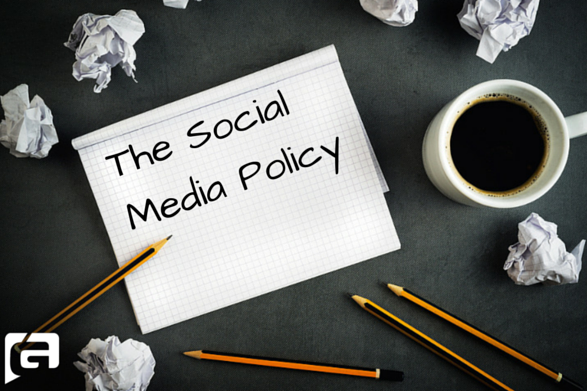Social Media Marketing
March 29, 2023

In this digital age, the corporate social media policy is the common tool for guiding employee’s positive use of digital media.
The purpose of a company social media policy is to guide and instruct employees on how to use social media responsibly and positively to create goodwill among customers and potential customers considering purchasing your service or product or shopping at your store or dining at your restaurant.
The social media policy is also a guide and tool to gently remind employees about the diversity of viewpoints and opinions of your customers. And that that diversity should be forefront in employees’ mind prior to interacting on social media. Employees may care deeply about personal beliefs and hot button topics such as politics or religion, and they can discuss those on their own time, but shouldn’t use social media, in their role as employees, to argue or offend customers or potential customers.
Strict, Command and Control PoliciesSome industries and companies, especially heavily regulated industries, have iron clad strict policies that govern employees’ use of social media. For example, Wall Street and financial companies typically have super strict employee social media policies. You’re not going to find many Goldman Sachs employees Tweeting, Facebooking, or Instagramming about their jobs during the work day.
Healthcare is another heavily regulated industry with strict social media policies governing employees sharing work or highly confidential patient information via social media.
However, the number of companies with such strict social media policies is becoming smaller and smaller with the growth of social media usage among employees, especially younger employees.
Coca-Cola
You are responsible for your actions. We encourage you to get online and have fun, but use sound judgment and common sense.
Adidas
You are personally responsible for the content you publish on blogs, wikis or any other form of user-generated media. Please remember that the internet never forgets. This means everything you publish will be visible to the world for a very, very long time. Common sense is a huge factor here. If you are about to publish something that makes you even the slightest bit uncomfortable, review. If you are still unsure and it is related to the Adidas Group and its brands, talk to your manager or Corporate Communications.
Los Angeles Times
Assume that your professional life and your personal life will merge online regardless of your care in separating them.
Best Buy
Basically, if you find yourself wondering if you can talk about something you learned at work -- don’t. Follow Best Buy’s policies and live the company’s values and philosophies. They’re there for a reason.
Just in case you are forgetful or ignore the guidelines above, here’s what could happen. You could:
• Get fired (and it’s embarrassing to lose your job for something that’s so easily avoided)
• Get Best Buy in legal trouble with customers or investors
• Cost us the ability to get and keep customers
Remember: protect the brand, protect yourself.
In this day and age you need to have a social media policy or at the very least a simple set of guidelines. Even short guidelines such as the examples above can go a long way to prevent headaches from employees on social media.
Stay up to date with the latest in employee advocacy.
Social Media Marketing
Social Media Marketing
Social Media Marketing
Copyright @2024 GaggleAMP Inc. All rights reserved.